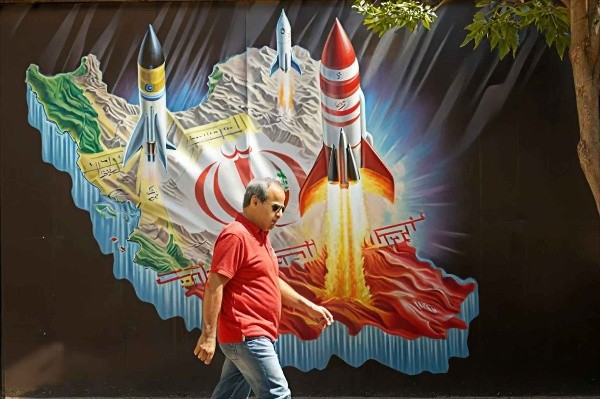Iran’s Plan to Strike Back Against the U.S.
Iran’s Military Preparations Following U.S. Attacks
Loading...

US penalties come as Israeli government considers military response against Iran amid risk of spiralling escalation.
Overview of Sanctions
In a significant escalation of tensions in the Middle East, the United States has imposed sanctions on Iranian companies and vessels involved in the trading and transportation of oil. This move comes in response to a missile attack launched by Iran against military sites in Israel on October 1, 2024. The sanctions aim to penalize Tehran for its aggressive actions and to disrupt the financial resources that support its nuclear and missile programs.
Details of the Missile Attack
The missile barrage from Iran was reportedly a retaliation for the assassination of key figures associated with Hamas and Hezbollah, including Hamas chief Ismail Haniyeh and Hezbollah leader Hassan Nasrallah. These attacks have heightened fears of a broader conflict in the region, prompting Israeli officials to consider a military response against Iran. US Secretary of State Antony Blinken emphasized the need for consequences, stating, “In the aftermath of Iran’s unprecedented October 1 attack against Israel, the United States made clear that we would impose consequences on Iran for its actions”.
Scope of the Sanctions
The sanctions announced by the US Treasury and State Department target Iran’s oil and petrochemical industries, which are already under heavy restrictions. The latest measures are designed to tighten enforcement of existing sanctions and send a clear message of support for Israel. The US administration has determined that any individual or entity operating within these sectors will face sanctions, effectively freezing their assets in the US and prohibiting American financial transactions with them.
On Friday, the US sanctioned six entities and six vessels, while the Treasury Department targeted an additional 17 ships registered in various countries, including the United Arab Emirates, China, and Panama. These actions reflect a concerted effort to limit Iran's ability to generate revenue from its oil exports, which are crucial for funding its military and nuclear ambitions.
Regional Implications and Responses
The situation remains tense as the Israeli government deliberates its response to the Iranian missile attack. President Joe Biden has advised Israel to consider alternatives to striking Iranian oilfields, warning that such actions could escalate the conflict further. Biden remarked, “If I were in their shoes, I would be thinking about other alternatives than striking Iranian oilfields”. However, Israeli officials have historically disregarded US warnings, raising concerns about potential military actions that could destabilize the region.
A spokesperson for Kataib Hezbollah, an Iran-aligned Iraqi group, warned that an “energy war” could lead to a significant disruption in global oil supplies, potentially affecting around 12 million barrels daily, which constitutes about 10% of the world's production. Such a scenario could lead to soaring oil prices and economic repercussions for consumers, particularly in the US, where the political implications could impact the upcoming elections.
US-Iran Relations and Future Outlook
The US has characterized Iran's missile attack as unprovoked, despite the context of retaliatory actions against Iranian interests. The Iranian government has asserted its right to defend itself, with its UN envoy stating that Iran is prepared to protect its sovereignty against any aggression. As tensions continue to rise, the international community watches closely, aware that any miscalculation could lead to a broader conflict involving multiple nations.
In summary, the US sanctions on Iran's oil sector represent a critical step in the ongoing geopolitical struggle in the Middle East, reflecting both the immediate consequences of Iran's military actions and the broader implications for regional stability and global energy markets.
Editor
Iran’s Military Preparations Following U.S. Attacks
Troops remain in five strategic locations, raising fears of renewed tensions and long-term occupation.
Opposition forces have taken control of the capital after a significant offensive. Here is how it unravelled.
